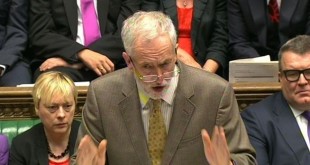A panel event run by the Post-Crash Economics Society at the University of Manchester debating the subject "Can People's QE Fix Britain's Economy?".
Read More »All Your Cars Are Belong Us
Did you know that most cars do nothing for 23 hours a day? Yes, they are totally idle. Sleeping safely in their owner's garage, or on his drive, or at her place of work, or in the station car park. Shocking, isn't it? What a terrible waste of assets. We should ensure that all these cars are DRIVEN. All the time. But there is a reason why all these cars are idle. Their owners are busy doing something else. Many people who drive to work, or to the station, do jobs that they love, that...
Read More »Generosity
In Dickens' "A Christmas Carol", the miser par excellence, Ebenezer Scrooge, is frightened by the Christmas ghosts into uncharacteristic acts of generosity. But I have always wondered how long his change of heart lasted. After all, Christmas lasts less than 2 weeks....then the decorations come down, the lights go out and we all start our post-Christmas diets. The abundance of Christmas is followed by the scarcity of Lent. I fear that Scrooge's habitual miserliness would have made a swift...
Read More »The shabby economy
Yesterday, I attended a panel discussion on the "Sharing Economy" at the Battle of Ideas. Benita Matovska, who describes herself as "chief sharer" of the comparison website Compare & Share, enthused about how the Sharing Economy would build communities, transform capitalism and restore the planet. "It's all about trust," she said.No it isn't. It's all about money.Here's what Matovska herself says on the Compare & Share website. I was trying to book a family holiday in Morocco - when...
Read More »The UK Government is spinning a yarn
At Prime Minister's Questions the other day, Jeremy Corbyn produced a case study of a working single mother who would suffer a substantial real fall in income due to tax credit cuts despite the NLW and tax threshold rise. In response, David Cameron claimed the new National Living Wage and tax threshold rises would mean that working people on low incomes would be better off by 2020. Who is right?The National Living Wage will improve earned income for a high proportion of families. The...
Read More »The Slough of Despond
I'm bored.Bored with this crisis. Bored with endless calls for bank reforms. Bored with never-ending stories of inadequate bank resolution and legal battles which benefit no-one but lawyers. Bored with ineffectual monetary policy and fiscal gridlock. Bored with seeing the same things proposed over and over again, even things we know don't work and will never happen.Today, Mike Konczal wrote a piece on why restoring Glass-Steagall wouldn't solve anything. He's right, of course. But it is now...
Read More »The dangers of historical taboos
The Group of 30 central bankers and economists has produced a new report, "Fundamentals of central banking: lessons from the crisis". It traces the history of central banking theory and practice, including the economic thought that underlies it. And it draws from it some important lessons about the causes of the 2008 crisis and the reasons for the very long, slow recovery. I've discussed the main themes of the report here (Forbes).But in this post, I want to focus on a particular piece of...
Read More »Posts on Russia
I wrote a number of posts on Forbes about Russia at the back end of 2014. At the time, there was a lot going on with the currency, the central bank and the banks. So for ease of reference, I've collected them here, in chronological order.Why the Russian Central Bank can't defend the rubleHas the Russian Central Bank thrown in the towel?The Russian Central Bank is regaining control, but for how long?Oil, sanctions and Russian politicsHow to destroy a currency, Russian styleRussia and the...
Read More »The “something for nothing” society
While visiting Germany in the summer, I was struck by the prevalence of adverts saying something on the lines of "Sie sparen können". I've never seen a society so obsessed with saving, not in the sense of putting money away (though they do that too) but in the sense of reducing costs. Never mind the quality, look at the price. "You can save". Always.Penny-pinching is by no means limited to German households. Ever since we collectively decided, on September 16th 2008, that the money had run...
Read More »Capital, liquidity and the countercyclical buffer, in plain English
The FT reports that due to “modest but rising credit growth”, the Bank of England’s Financial Policy Committee (FPC) considered raising banks’ countercyclical capital buffer. According to the FT's Caroline Bingham: This measure requires lenders to build up capital in good times to draw down in more challenging times. And she goes on to say this: The prospect of yet more capital that banks must set aside would come on top of capital rules on a European and global basis that lenders must...
Read More » Francis Coppola
Francis Coppola







